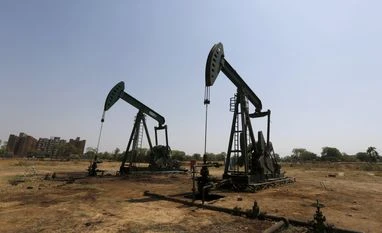India's flagship overseas oil firm ONGC Videsh has got a new partner in Oil India Ltd to replace a reluctant IndianOil (IOC) for the potential acquisition of a 50 per cent stake in Tullow Oil Plc's USD 3.4 billion oilfield project in Kenya, according to people with knowledge of the matter.
But the OVL-OIL duo now faces competition from super-aggressive Chinese energy giant Sinopec which has entered the fray taking advantage of the delay on the Indian part in finalising the deal.
Originally, ONGC Videsh, the overseas arm of state-owned Oil and Natural Gas Corporation (ONGC), was interested in buying out half of the stakes that Tullow, Africa Oil Corp and TotalEnergies SE held in the Lokichar oilfield in Kenya.
The board of OVL had approved the deal, sources said adding the firm however wanted to bring on board IOC, which too had shown interest in the project.
For months, OVL-IOC negotiated the stake in the project. But the transaction couldn't be completed as IOC started having second thoughts, possibly due to financial strains resulting from losses on fuel sales.
Sources said when a Kenyan ministerial delegation visited the India Energy Week in Bengaluru in February, the Indian side informed that IOC would not be going ahead and instead state-owned Oil India Ltd (OIL) will join in.
More From This Section
However, the months of delays led to the Chinese sensing an opportunity. China Petroleum & Chemical Corporation (Sinopec) is now sending fillers to Tullow and the other two partners in the project, they said.
Tullow, which is headed by India-origin CEO Rahul Dhir, had originally favoured the Indian consortium as the Kenyan project and the Barmer fields in Rajasthan had a lot of similarities.
As much as 70 per cent of the supply chain sourcing could have been done from India and Dhir, who as CEO of Cairn India Ltd had brought the Rajasthan fields to production more than a decade back, saw a lot of synergy, sources said.
Chinese interest may however spoil the party as Beijing yields considerable influence on the African nation.
The deal being negotiated by OVL-OIL would have made the Indian state-backed firms joint operators of the venture.
Tullow is the present operator of the venture with 50 per cent stake. Africa Oil Corp and TotalEnergies SE have 25 per cent stake each. The three were selling half of their stakes to the Indians.
OVL, an explorer with pursuits in 35 oil and gas assets in 15 nations, would be the lead on the venture, backed by OIL, the nation's second-largest state oil explorer.
Kenya's south Lokichar fields in blocks 10BB and 13T are projected to produce 120,000 barrels of oil per day (6 million tonnes per annum), with anticipated gross oil restoration of 585 million barrels over the total lifetime of the sector.
The waxy crude from the project, which is similar to what is produced from Barmer in Rajasthan, will be shipped from the fields by way of a 20-inch, 825-kilometer heated pipeline to a port in the archipelago of Lamu.
Barmer crude oil too is transported through a 700-km heated pipeline from Barmer deserts to the Gujarat coast.
Indian refiners on the west coast would have been ideal customers of the Kenyan crude, sources said adding it would take three years for the companies to start producing oil from the date the investment decision is made.
The USD 3.4 billion investment includes developing the South Lokichar fields and linking them to Kenya's Indian Ocean port of Lamu via a heated pipeline.
)